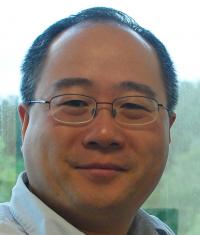Associate Professor Ming Su from the University of Central Florida (UCF) has been honored with the prestigious New Innovator award from the National Institute of Health (NIH).

Associate Professor Ming Su from UCF (Credit: University of Central Florida)
The associate professor at the NanoScience Technology Center at UCF is entitled to a US $2 million grant as part of the award. The NIH has instituted the award in recognition of futuristic developments that revolutionize science and hasten the application of research for betterment of health.
The award is part of the 51 New Innovator awards, 10 Pioneer awards and 20 Transformative Research awards given by NIH. The total funding available across all the 82 awards is US $155 million. The High Risk Reward program of the NIH provides the funding for all the projects which are research programs focusing on health and disease.
Ming Su is the only award recipient from universities in Florida. Su’s research involves the application of nanoparticles to concentrate the focus of radiation energy on cancerous tumors without impacting surrounding cells. Cancer patients are subjected to radiation therapy at some point in their treatment. The X-ray dosage applied mostly causes damage to healthy tissue in the surrounding area. Also, this imprecise feature of radiation therapy leads to application of smaller dosages of radiation than necessary, thereby resulting in incomplete destruction of cancer cells. Research has been carried out over the years on the benefits of employing nanoparticles for targeted radiation therapy.
Su will employ nanoparticles to deposit radiation energy preferentially at tumor sites. This will not only translate as reduced radiation dosage for effective tumor destruction but also as minimal damage to healthy cells.
Disclaimer: The views expressed here are those of the author expressed in their private capacity and do not necessarily represent the views of AZoM.com Limited T/A AZoNetwork the owner and operator of this website. This disclaimer forms part of the Terms and conditions of use of this website.